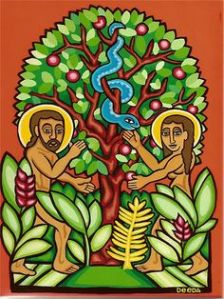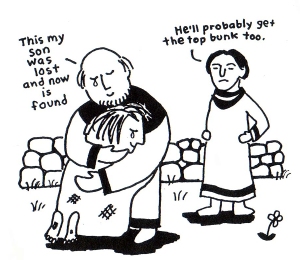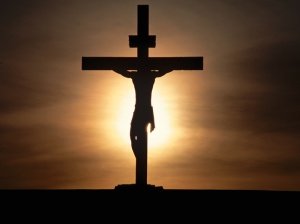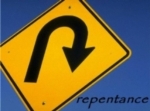3rd Sunday in Lent, year A, preached 3/19/17
first reading: Exodus 17:1-7
Psalm 95
second reading: Romans 5:1-11
gospel reading: John 4:5-42
Have you ever boasted in suffering? I mean, really.
I don’t know ONE person, even Jesus himself, who when suffering, has said, “Boy am I glad to be going through this! Look at me everybody – I’m suffering and ain’t it grand!”
The Israelites in our first reading certainly weren’t boasting in their suffering. In fact, they were a whiny bunch. The Lord had brought them out of bondage, but that wasn’t enough. The Lord had given them manna from heaven to eat, and THAT wasn’t enough. You’d think after all that they would trust that God would somehow take care of their thirst, but no. They bitterly complained, so that Moses was afraid for his life! No boasting there.
And there was no boasting from the Samaritan woman at the well either. It’s clear from Jesus that she has seen her share of suffering. Whether her reputation was sullied by questionable behavior, or whether she suffered as a childless widow being passed as a possession from brother to brother, her life wasn’t easy. She’s got no time for boasting about anything. She’s going about her daily business, trying to survive.
Boasting about suffering? I don’t think so. But at first glance that’s what it seems we’re expected to do in our second reading. And not only that, there’s the part where St. Paul seems to tell us that suffering is GOOD for us – it produces endurance, then character, then hope.
So is the line of thought, boast in your suffering because suffering is good for you, because it will make you stronger and give you hope?
One could argue that surviving suffering makes us stronger, sure – but to have that give us hope? It seems illogical and cruel.
I’ve never really liked our second reading for today because it’s been used to glorify suffering. Masters have used it against slaves; abusers against those they abuse; the sick asked to be glad for their sickness. It’s one of those verses that, when taken out of context, can cause all kinds of unnecessary pain and suffering for people.
But if St. Paul isn’t telling us to just lay down in our suffering – take it and be glad for it – what IS he telling us?
Well, because St. Paul is often quite wordy, a man whose thoughts often went in circles rather than straight lines we have to read SLOWLY. And sometimes it even helps to draw pictures!*
Through Jesus Christ we are justified and have peace and grace. This gives us hope – the hope we have of sharing the glory of God. THIS is our starting point for EVERYTHING.
Now… it is because of this hope, that we can even begin to boast in our suffering.
You notice these verses begin with hope and end with hope – with suffering in between. This hope, the hope which justification and peace and grace give us, carries us through suffering.
In fact, Paul is saying something quite extraordinary to all those who think faith is the cure-all for everything – those who would argue that as Christians we should be happy all the time or something is wrong or lacking in our faith. Paul acknowledges the reality of suffering in life, EVEN for those who have faith. It is THIS hope which allows us to boast, even in suffering.
You see, the boasting isn’t in the suffering itself, as if suffering were some wonderful thing – the boasting is in knowing that our suffering doesn’t separate us from God. Even when we suffer, God is still close to us. Even when we suffer, we are still able to have hope through Jesus Christ. Now that IS something to boast about.
The hope given to us through our justification in our Lord Jesus Christ – the peace and grace we have “obtained” through him – give us hope and keep us in hope through all the trials that come our way, because hope does not disappoint us.
So the boasting isn’t some prideful “tooting my own horn” at my trials. It isn’t some martyr complex, LOOKING for suffering. It isn’t some formula by which we are KEPT in suffering and told to like it.
It’s being held firm in Jesus’ love for us, knowing he is with us through our suffering. It’s that Jesus gives us the endurance and character to make it through, even when we’re not sure how we can make it another day.
This endurance and character is even the permission we have to stand against that which brings us suffering! Those who deal in injustice COUNT ON us not getting this part of it – what a shock when we do. When we stand up to bullies and say, “Because Jesus loves me I can say ‘no more!'”
“For while we were still weak,” St. Paul writes… “while we still were sinners Christ died for us.” “While we were enemies, we were reconciled to God through the death of his Son…”
This is where it begins. This is the foundation. “While we were still weak… sinners… enemies… we were reconciled…”
THIS is our justification through Jesus. THIS is the justification, the reconciliation that brings us peace and the “grace in which we stand.”
When St. Paul writes about boasting in suffering he means that even in our suffering we still have Jesus, and Jesus will be with us through it.
So we aren’t expected to say, “Guess what? I have cancer! Isn’t that great!” What we can say is, “I have cancer. But even though I have cancer I know that God loves me and Jesus died for me and is with me to help me through this. Thank God!”
There is a HUGE difference between the two. We could never say the first, but we are blessed to say the latter.
AMEN.
















